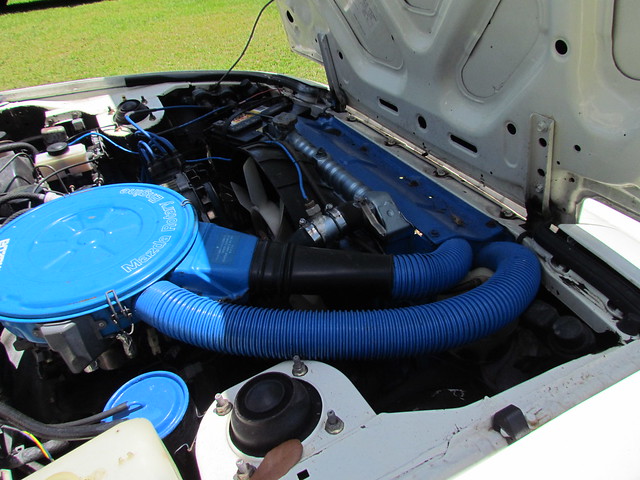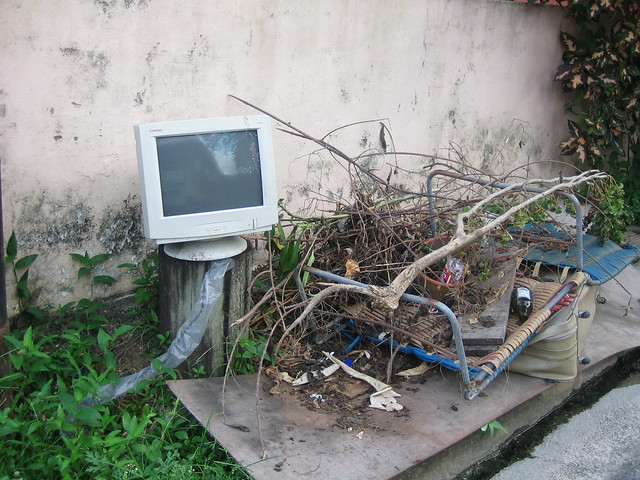 Like some of you, I grew up in what I call a maintenance culture. We took care of what we had because it wasn’t disposable, because we appreciated it, and because we wanted it to last longer. You still find it here and there when you open the hood of a vehicle and see a neatly dressed engine, or when you see a shiny pair of boots. There’s a quiet dignity, though, to the closed engine hood with a clean engine underneath. Most sane people don’t open their hoods to show off. They do it because they feel it needs to be done and they feel better knowing it is done.
Like some of you, I grew up in what I call a maintenance culture. We took care of what we had because it wasn’t disposable, because we appreciated it, and because we wanted it to last longer. You still find it here and there when you open the hood of a vehicle and see a neatly dressed engine, or when you see a shiny pair of boots. There’s a quiet dignity, though, to the closed engine hood with a clean engine underneath. Most sane people don’t open their hoods to show off. They do it because they feel it needs to be done and they feel better knowing it is done.
I mention all of this because I was chatting with a lawyer not long ago and I summarized some of what we see as a difference between the maintenance culture we grew up in as and the Disposable Culture that now exists.
Cars? Disposable. Shoes? Disposable. Glasses? Disposable. Utensils? Disposable. Computers? Disposable. Telephones? Disposable every time someone comes out with a new phone – status symbols. Everything has been so disposable for so long.
That’s changing, maybe, but not by much, and not for the same reasons.
 Entire generations have gone without getting the deposits back on glass bottles – they just threw the plastic bottles away, as if tossing them in a bag or a bin would make them disappear from the Universe. Unfortunately for all of us, the Universe has different priorities and destroying plastic bottles is not one of them – all but the most ignorant see that now.
Entire generations have gone without getting the deposits back on glass bottles – they just threw the plastic bottles away, as if tossing them in a bag or a bin would make them disappear from the Universe. Unfortunately for all of us, the Universe has different priorities and destroying plastic bottles is not one of them – all but the most ignorant see that now.
The same holds true of computers, whose boards house all form of nasty things that don’t belong in a water table.
Some people have recycled for years, sometimes more to claim some moral high ground instead of the Grand Purpose of Giving The Universe a Break.
And still, the Maintenance culture is not returning. It exists still – we still might marvel at the cars in Cuba, maintained with parts made in Cuba, as needed. Or in other parts of the world where simple things such as water still remain a commodity. We take care of things, as a society, until they are items that we cherish.
No one cherishes an old Chromebook. The Chromebook I’m tapping this out on was probably purchased in 2013, and is as unfashionable as last year’s iPhone. Yet it works, even with the recent misadventures of being dropped and stepped on by the author.
But how did this all come to be, anyway? How did we go from not buying new things when the old ones worked just fine, when we maintained things – how did we go from there to throwing phones away every year?
Cheaper manufacturing is a key to this – we produce a lot more a lot faster, which means that we have more to sell – and marketers build on an odd human instinct to want to have some form of elevated status by having the newest things. Some might say that this is so that they can attract sexual partners, that it has an evolutionary benefit, but having seen some of the children growing up now I’m not certain there is an actual evolutionary benefit to attracting sexual partners so that a new generation of children like some I’ve seen becomes predominant. If you have well behaved children that value people more than things, I encourage you to continue having them if only to even the odds.
What I’m getting at is that a maintenance culture leads to a maintenance society. A disposable culture leads to a disposable society.
We’re definitely disposable these days, it seems.